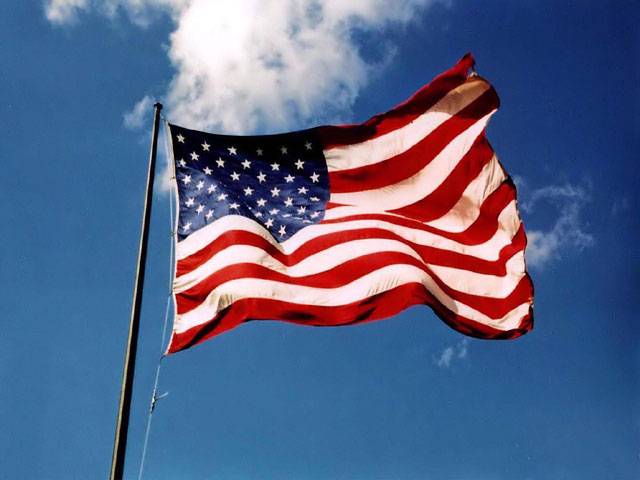NEW YORK - An influential American newspaper, commenting on the lingering opposition-government standoff in Pakistan, Saturday urged the United States to press the Army not to "stage a coup" so as to allow the democratic process to work.
"The United States, preoccupied with crises elsewhere, has shown little urgency in trying to calm the situation, even though Pakistan’s stability is crucial to regional order — especially as American troops withdraw from Afghanistan," The New York Times said in an editorial, 'Pakistan, Its Own Worst Enemy'.
"It (US) should be pressing Pakistan’s army, in particular, to reject any idea of staging a coup. (Prime Minister Nawaz) Sharif should resolve to govern better while the military focuses on its primary concern, defeating the Taliban threat," the paper added.
The Times said "Pakistan faces very big problems: a failing economy; a Taliban insurgency; and persistent tension with India, which has resulted again in exchanges of cross-border fire. The country’s leaders and citizens obviously need to join in common cause to put the country on a steadier course.
"Alas, this is Pakistan. For the past two weeks, thousands of protesters in Islamabad have been demanding the resignation of Prime Minister Nawaz Sharif. His critics have every right to express their views peacefully. But forcing his resignation is the last thing Pakistan needs.
It would further polarise society, weaken the fragile democratic institutions and strengthen a powerful military, which says it wants to be out of politics but has regularly staged coups and otherwise sought to control civilian governments for three decades.
"Mr Sharif came to office in a parliamentary election 15 months ago, the first peaceful, democratic transition of power between civilian leaders in the country’s history. It was a hopeful moment; some 60 percent of voters turned out, and most people seemed willing to accept his victory.
"The current anti-Sharif anger is being stoked by two men. Imran Khan, a prominent cricketer turned politician, wants new elections. Dr Tahirul Qadri, a cleric of the Sufi Islam sect, is pushing for the creation of a unity government. The protesters have demanded electoral reforms and Mr Sharif’s removal because of alleged corruption in the 2013 election. Some believe that the army, which has an uneasy history with Mr Sharif, has had a hand in the crisis.
"Reports that Mr Khan and Mr Qadri are negotiating with the army chief of staff are unsettling.
"Mr Sharif’s brief tenure has been marked by sectarian tensions, power outages, insurgent-related violence and a failure to deliver on campaign promises of economic revival. He has also named cronies to high posts. But forcing him out now and in this way is not the answer. A smarter approach is to make democratic processes work through reforms to prevent electoral fraud and rampant cronyism. It will also require negotiation and compromise."
Meanwhile, Husain Haqqani, a former Pakistan ambassador to the United States, also weighed in, urging the Obama administration to act in preventing a coup. "Pakistan's fragile democracy, and the semblance of stability it brings to this troubled nuclear-armed Muslim country, is once again under threat," he wrote in The Wall Street Journal.
"The protestors' cult-like devotion to their leaders risks translating into violence, which could result in intervention by Pakistan's powerful military," pointing out that Imran Khan is anti-American and supports the Taliban.
"Mr Sharif is vulnerable partly because he governs more like a monarch than a democrat, putting family members and retainers in key government positions... Mr Sharif also tends to encourage polarisation by refusing to compromise with political opponents, a shortcoming that his predecessor (Asif Ali) Zardari avoided along the way to completing his full five-year term," Haqqani wrote.
"These flaws notwithstanding, Mr Sharif's premature removal from office would undermine Pakistan's fledgling democracy. If a few thousand demonstrators are able to force out an elected leader or provoke another coup, no elected civilian government would be able to survive similar intrigue in the future," he said.
"Pakistan's fragility should concern Americans and others who recognise the country as an epicentre of global terrorism. Islamabad's preoccupation with corruption allegations and hyper-nationalist rhetoric distracts vital attention from the larger threats of rising extremism, increasing religious intolerance and widespread violence.
"In the past, the United States has alternated between sanctioning Pakistan and showering it with economic and military aid to encourage civilian government and counterterror cooperation. But the main beneficiary of such aid has been Pakistan's military, which remains unwilling to drop its strategic focus on permanent conflict with India and as a result has continued using jihadist militants as proxies for regional influence.
"The Obama administration has by and large ignored the political turmoil in Pakistan as part of its general retreat from foreign affairs. In doing so, the US runs the risk of facing future crises without viable policy options, much as it has with Egypt since 2011. Washington should put its weight behind Pakistani democracy, discourage Pakistan's generals from manipulating protesters and nudge Prime Minister Sharif toward a more inclusive governing approach."
Friday, April 26, 2024
US urged to ensure no mily coup in Pakistan

Caption: US urged to ensure no mily coup in Pakistan
8:38 PM | April 25, 2024
8:36 PM | April 25, 2024
Vloggers Shiraz, Muskan cross 2m followers on Instagram
12:27 AM | April 26, 2024
Achakzai stresses collective wisdom to address country's crises
12:27 AM | April 26, 2024
IHC puts off cipher case hearing until April 30
12:26 AM | April 26, 2024
Nawaz Sharif convenes PML-N Punjab meeting tomorrow
12:25 AM | April 26, 2024
ECP reinstates PTI-backed MNA from NA-81 Gujranwala
12:24 AM | April 26, 2024
Academic Uprising
April 24, 2024
Cooperation Momentum
April 24, 2024
Facing Reality
April 24, 2024
Absent Academia
April 23, 2024
Murree’s Redemption
April 23, 2024
Ending animal suffering
April 25, 2024
AI governance
April 25, 2024
AI concerns
April 25, 2024
Population paradox
April 24, 2024
Unveiling differences
April 24, 2024
ePaper - Nawaiwaqt
Advertisement
Nawaiwaqt Group | Copyright © 2024





